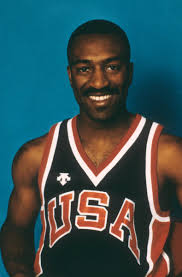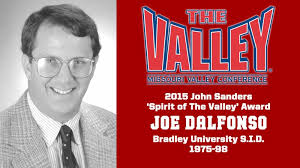The NBA Finals date back to 1947 (when they were known as the Basketball Association of America Finals) and the very 1st NCAA tourney was held in 1939. Olympic basketball competition is even older: it debuted as a demonstration event in 1904 and the men’s version became a medal sport in 1936, with the women finally getting their chance to go for the gold in 1976. The United States has dominated Olympic basketball competition from the start: the men have won 15 gold medals in the 18 tournaments they have participated in during the past 84 years, while the women have won 8 gold medals in of the 10 tournaments in which they have competed during the past 44 years. Those of you who were looking forward to the 2020 Olympics opening ceremonies in Tokyo on July 24, 2020 will have to wait an extra 364 days, as the coronavirus caused a postponement until July 23, 2021. Due to the absence of college basketball since mid-March, HoopsHD’s Jon Teitel decided to fill the void by trying to interview as many prior Olympic players/coaches as possible so that you have something to read this summer while not watching the Summer Games. We continue our coverage by chatting with former Bradley SID Joe Dalfonso about Hersey Hawkins scoring 63 PTS in a game and winning a bronze medal in 1988. Today marks the 24th anniversary of Hersey scoring 4 PTS for Seattle in a loss to Chicago in Game 6 of the 1996 NBA Finals.
Hersey was born/raised in Chicago: what made him choose Bradley? The reason he came to Bradley was Coach Dick Versace, who had been here since 1978. He recruited Hersey because even though he was a center Dick was the only 1 who told him that he could play the 2-guard in college. I think it came down to us and Illinois State.
On February 22, 1988, he scored a career-high 63 PTS in a win at Detroit, which remains tied for the 10th-best scoring effort against a D-1 opponent in history: was it just 1 of those scenarios where every shot he put up seemed to go in because he was “in the zone”? The true story is that I was not there and that was the only game of his that I ever missed! It was a non-conference game at Detroit and we were hosting the MVC tourney that year so I was just swamped with tourney-prep work. I told my assistant to go to the game in my place…and then I listened on the radio as Hersey scored 63 PTS. He scored 40+ PTS a few times so I had seen other nights like that.
In the 1988 NCAA tourney he had 44 PTS/6-8 3PM/10 REB/6 AST/3 STL/2 BLK in a 4-PT loss to Auburn: where does that rank among the best all-around games of his career? That has to be right up in the top-3. When we arrived in Atlanta he was front-page center of the local newspaper with the headline “Top Gun”. He was the nation’s leading scorer so everyone knew about him and he had a tremendous game. We had the ball down by 2 PTS late before turning the ball over.
He led the nation with 36.3 PPG as a senior and his 3008 career PTS remains #10 in NCAA history: what was his secret for being a great scorer? When you looked at him during a game you could not tell if we were up 10 or down 10. He had the same demeanor and never got too excited: he was like an assassin and played way bigger than 6’3”. After Dick resigned our new coach Stan Albeck (a Bradley alum) had an offense that promoted scoring. Our president did not want to bring in a new coach during June so we gave Stan a 5-year contract and instituted an NBA offense that was built around Hawk. He made 55% of his shots so why would you not give him the ball?!
He finished that season by being named All-American/national POY: what did it mean to him to receive such outstanding honors? It is hard to speak for him but he was pretty low-key about everything: he just cared about what time practice was starting. He was interviewed just about every single day during the final month of his college career: he would come into my office at 2:30PM and I would dial up whoever was next on the list. It was just like having another class for him.
In the summer of 1988 he was drafted 6th overall by the Clippers (1 spot behind Mitch Richmond) and then traded to the 76ers: what did it mean to him to get drafted, and what did it mean to him to get traded? We were all anticipating him being drafted high but he did not care where he went: I had some ex-FBI guys show up in my office to see if there were any skeletons in his closet. He later came back here to play an exhibition game.
That September he played for team USA at the Olympics: what did it mean to him to represent his country, and do you think that the US would have won a gold medal had he not suffered an injury before a 6-PT loss to the Soviet Union in the semifinals? It is hypothetical but you always would like to have a healthy Hersey on his side. He always rose to the occasion and considered the Olympics just another tourney. That was the last of our Olympic teams with college players before the Dream Team came along in 1992. When he was in the NBA Finals with Seattle in 1996 he had some very good games against Michael Jordan and the Bulls.
In 1989 he averaged 15.1 PPG and was named to the All-Rookie 1st team: how was he able to make such a smooth transition from college to the pros? It was definitely due to the up-and-down system we ran under Stan. It was not run-and-gun but run-under-control as we averaged 92 PPG.
His career 87 FT% remains top-35 in NBA history and his 1622 career STL remains top-30 in NBA history: how did he balance his shooting with his defense? He was a terrific athlete who played baseball as a youth and could do just about anything on a basketball court. He led us in STL for 3 years but was also a great passer/rebounder.
He did not miss more than 3 games in a season during each of his 1st 11 years in the NBA: when people look back on his career, how do you think that he should be remembered the most? People have forgotten how good he really was and what he did. Some college teams these days struggle to score 60 PPG and he scored more than 36 PPG himself as a senior. I did not see Chet Walker play here but the 2 of them are the best in school history. He was a Hall of Famer in every category and is a great guy.


